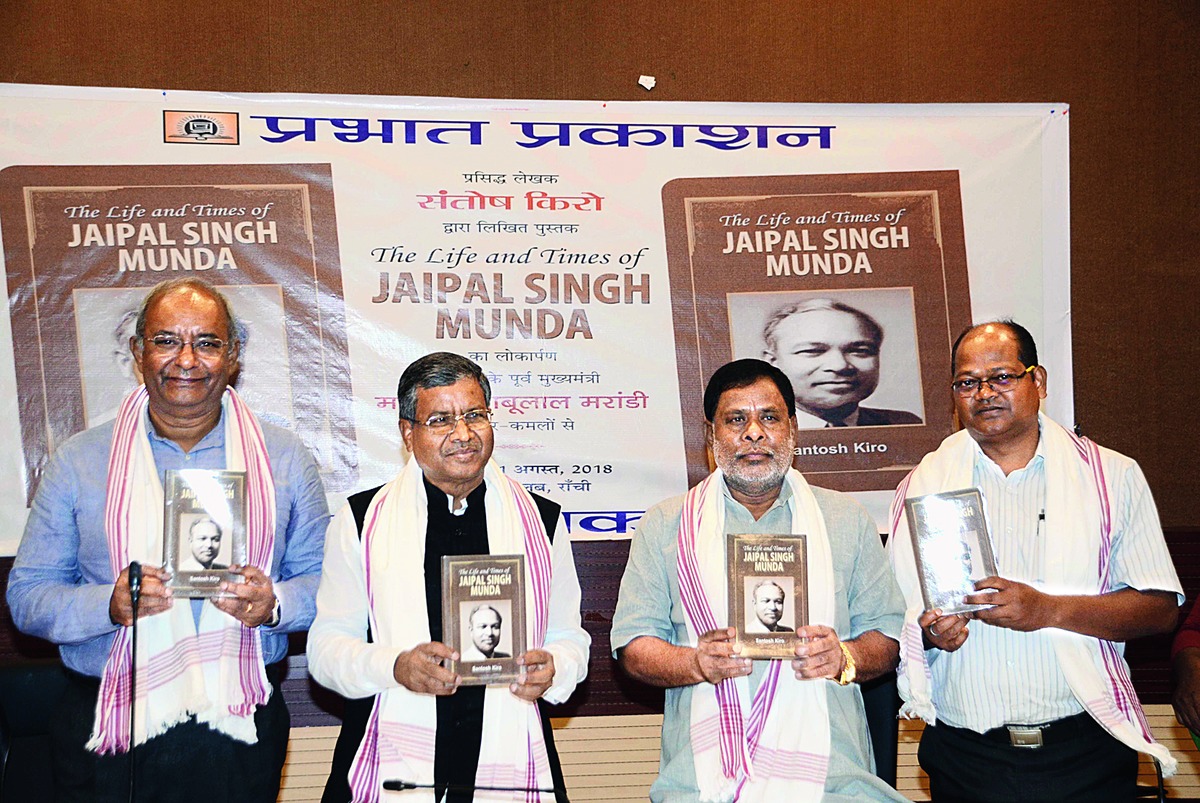
Ranchi: A select gathering of about 50 people discussed the multi-faceted personality of Jaipal Singh Munda, the Marang Gomke (great leader) of the tribals, at Ranchi Press Club on Saturday.
The occasion was the release of a book titled "The Life and Times of Jaipal Singh Munda" written by journalist-turned-teacher Santosh Kiro and published by New Delhi-based Prabhat Prakashan.
The speakers included former chief minister Babulal Marandi, who released the book along with Jaipal Singh's son Jayant and politician Shailendra Mahato.
They reminisced about the many facets of the legendary Munda leader. Besides being a hockey player, who captained the Indian team that bagged gold for the first time in Amsterdam Olympics in 1928, Jaipal Singh taught in colleges in India and Ghana (Africa) and became foreign secretary of the erstwhile princely state of Bikaner.
He could have been in the Indian Civil Service had he not quit during his probation period.
He formed Adivasi Mahasabha in 1938 that would become Jharkhand Party after Independence and raised the demand of a separate state of Jharkhand for the benefit of his fellow tribals.
His dream became a reality three decades after his death in March 1970.
As a brilliant student of St Paul's School in Ranchi, he drew attention of the foreign missionaries who took him to England where he studied and played hockey at Oxford University.
Jaipal Singh became a member of the Constituent Assembly that was responsible for drafting the Indian Constitution.
He highlighted the issues of the tribals while welcoming Objective Resolution, which defined the aims of the Assembly, in 1946 saying, "If there is any group of Indian people that has been shabbily treated it is my people. The whole history of my people is one of continuous exploitation and dispossession by the non-aboriginals of India punctuated by rebellions and disorder."
Still he hoped "there will be equality of opportunities when no one would be neglected (in independent India)".
"It's unfortunate that the young generation doesn't know about him and nothing much has been done to keep his memory alive," Marandi said on the occasion.
Jayant said he remembered him "more as a pita than a neta (as a father than a leader)", adding that he realised how great a leader his father was only after his death.
It also marks the beginning of Kiro's book that has eight chapters spread over 170 pages.
The first chapter called "The Last Flight" mentions the landing of a chartered aircraft at Ranchi airport on March 21, 1970 with the body of Marang Gomke who died in Delhi the previous day.
Witnessing a sea of people bidding their adieu to Jaipal Singh, Jayant realised how popular his father was.
The book, priced at Rs 400, then goes on to deal with the other aspects of his life - his fight for the tribals, demand for statehood and political struggle that eventually ended in the merger of his party with the Congress in 1963.
On what prompted Kiro to write a book on Jaipal Singh, he said, "He was undoubtedly a great leader, but not much had been written on him."











